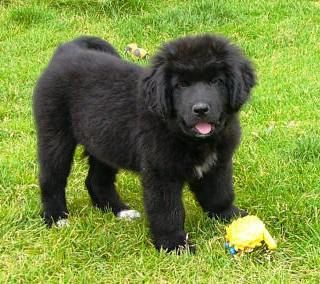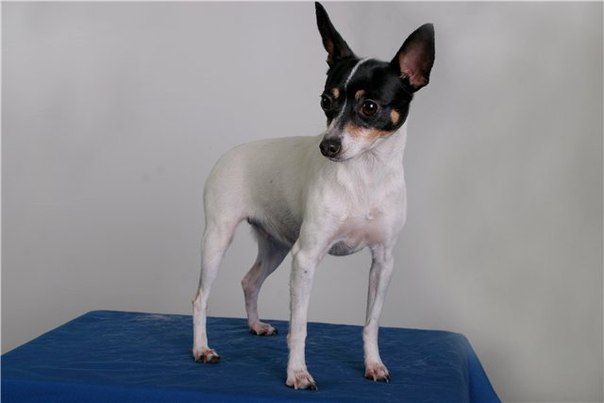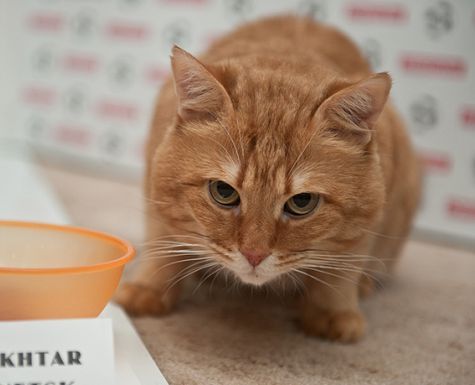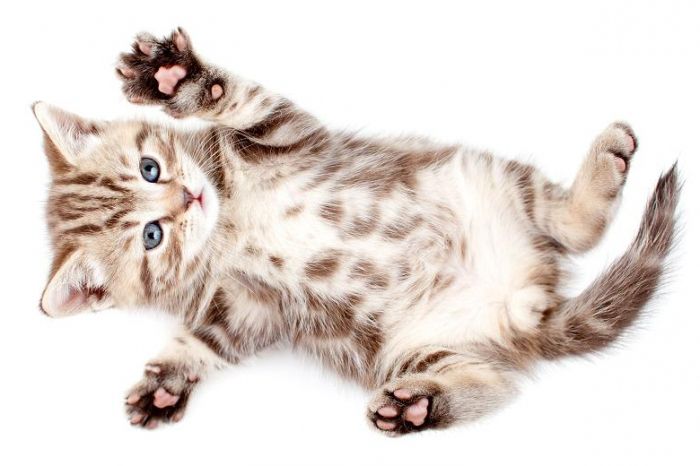The influence of man and nature on cat behavior
A cat is a highly developed animal. Communication with a person is a very serious factor influencing both sides. Man experiences a lack of communication with animals and nature. Therefore, it is necessary to use any experience of the positive results of raising and communicating with cats.
Animals and people are one world. And the simplest rule of communication is that animals must be educated. At the same time, we must not forget that the cat has a unique and independent character. You need to find a common language with your pet. It is necessary for both sides to understand each other. A person's relationship with a cat can only be based on patience and education.
Cats quickly realize the restrictions imposed by their owners. Our Misha understands well what we want from him, but he just doesn’t always fulfill our demands. For example, he knows very well not to jump on the kitchen table. He never allows himself to do this with us. But, as soon as you leave sausage, fish or meat on the table unattended, Misha will immediately drag everything onto the floor to eat. When we scold him, he feels guilty - he will flatten his ears and try to sneak somewhere out of our sight.
Misha knows well the place where he should eat, but sometimes he takes pieces of food into the hall. If dad notices in time that Mishka is heading out of the kitchen with a chicken bone, he sternly tells him: “Where did you take it? Well, eat where you’re supposed to!” Then Misha stops, wags his tail displeasedly, but doesn’t dare go into the hall, he eats in the kitchen.
Sometimes Mishka tries to disobey his dad. For example, dad in a stern voice forbids him to go into the room, but Misha really wants to go there. He walks stealthily, carefully raising his paws, as if in slow motion.
Cats perfectly understand the intonation of the voice, see the facial expression - this determines their behavior in each specific situation. If Misha feels inflexibility in his voice, he will obey. If he feels doubts or playfulness in our instructions, he will do it his own way.
Dad doesn’t allow Misha to lie on his bed. He drove him away several times, explaining in a stern voice that he didn’t like it. Misha understood everything perfectly and never jumps on daddy’s bed. He goes to bed with us every evening.
We try not to spoil Misha. When we eat, he should not sit next to us and beg for food. But any cat (like a person) is easier to educate than to re-educate. We used to give him food from the table and he liked it. Now, if we kick him out of the kitchen, he returns after a while, pretending that he doesn’t understand why he’s being kicked out.
We used to feed Misha dry food, but after we found out that a neighbor’s cat had died of urolithiasis, we gave up dry food. For three days Misha was mischievous, refused everything we offered him, and then began to eat almost everything we gave him.
With the appearance of a cat in the house, people begin to change. They become softer, kinder, calmer. A cat unites the whole family around itself. When one of us starts talking to Misha, the rest of our family joins in and everyone feels at ease and warm. Our cat is very attached to us, and we are used to considering him a member of our family. When Misha was sick, his parents gave him pills and herbs, and his dad gave him injections five times a day. While he was being taken to the hospital, I was very lonely, the house seemed empty without Misha.
Living close to humans provides cats with security and protection of their territory. They have no need to hunt for food. Despite this, domestic cats almost entirely retain the habits and behavior of their wild relatives unchanged, only adapting them to new living conditions in the house.
Preservation of the instincts of a hunter-predator explains many of our cat’s habits. Misha likes to occupy a high observation post and cannot stand closed spaces. Sitting on the windowsill, he loves to watch the birds fly from branch to branch. At the same time, he is excited: his eyes are wide open, his tail nervously twitches from side to side - sharply, like a whip. When a bird flies especially close to the window, he jumps up and walks along the windowsill.
When Misha plays, chasing a toy tied to a string, he also shows his hunting instinct. The game for a cat is an excellent exercise, muscle training and reaction testing. After sleep, Misha always stretches, first stretching out his front and then his hind legs. Our cat has good jumping ability. If he needs to jump to a high place, he first evaluates the distance, looks to see if there is anything lying there, and only then jumps. Previously, Misha could easily jump onto a kitchen window sill 85 cm high, but after an illness, when he was very weak, he can only jump onto his shelf in the living room, which is 10 cm lower than the window sill. (And he climbs onto the windowsill only with the help of a stool) .
Cat vision and hearing are also adapted to conditions that are more complex than those at home. Cats' eyes see at dusk six times better than ours. Misha has never yet encountered a single obstacle in the dark, even if he walks around the apartment at night when the lights are off. In addition to vision, his mustache and tactile hairs help him in this. Moreover, he walks silently. Sometimes he is only let down by the floorboards, which creak under his weight.
Cats' ears hear when there is complete silence around us, Misha raises his head and pricks up his ears when dad or mom are just climbing the stairs in the entrance. Even if it seems that Misha is sleeping and the door to the kitchen is closed, you just rustle the bag, open the refrigerator or start sharpening the knife, and he will immediately find himself in the kitchen with a question in his eyes: “Do you want to cut the meat for me?”
Cats sense odors that are inaccessible to us. Misha smells fresh meat, even if it has not yet been defrosted - he comes into the room, rubs against his mother’s legs, calls her to the kitchen. When meeting us or our guests, Misha always sniffs everyone, getting the information he needs.
Cats themselves are clean and odorless creatures, since they hunt from ambush and prefer not to inform their prey or enemies of their presence. For the same reason, nature has endowed them with the instinct of hiding their waste from prying eyes and noses. After Misha goes to the toilet, he carefully scrapes the floor with his front paws, although there is no paper or sand in his bath.
Misha washes his face often. Licking and grooming the coat is not only a guarantee of cleanliness. These treatments also reduce tension and slow your heart rate. This is why, after a strong fright and in moments of confusion, cats begin to wash themselves.
In nature, cats often eat plants - they feel which grass or root to chew in order to recover from an illness. In winter, Misha often bites the leaves of indoor flowers growing on the windowsill. And as soon as the first green grass appears on the street, I bring it to Misha, and he eats it with pleasure.
Cats sense the different moods of their owner. They are able to “heal” it by lying on the diseased parts of the body. And also to anticipate the owner’s return long before his actual appearance.





No comments here yet.